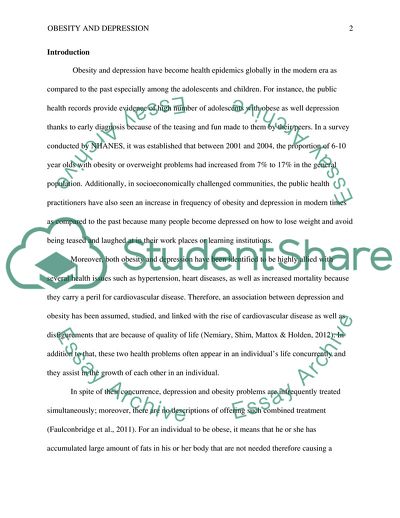Cite this document
(Obesity and Depression Research Paper Example | Topics and Well Written Essays - 1750 words, n.d.)
Obesity and Depression Research Paper Example | Topics and Well Written Essays - 1750 words. https://studentshare.org/health-sciences-medicine/1808024-obesity-comorbid-with-depression
Obesity and Depression Research Paper Example | Topics and Well Written Essays - 1750 words. https://studentshare.org/health-sciences-medicine/1808024-obesity-comorbid-with-depression
(Obesity and Depression Research Paper Example | Topics and Well Written Essays - 1750 Words)
Obesity and Depression Research Paper Example | Topics and Well Written Essays - 1750 Words. https://studentshare.org/health-sciences-medicine/1808024-obesity-comorbid-with-depression.
Obesity and Depression Research Paper Example | Topics and Well Written Essays - 1750 Words. https://studentshare.org/health-sciences-medicine/1808024-obesity-comorbid-with-depression.
“Obesity and Depression Research Paper Example | Topics and Well Written Essays - 1750 Words”. https://studentshare.org/health-sciences-medicine/1808024-obesity-comorbid-with-depression.


